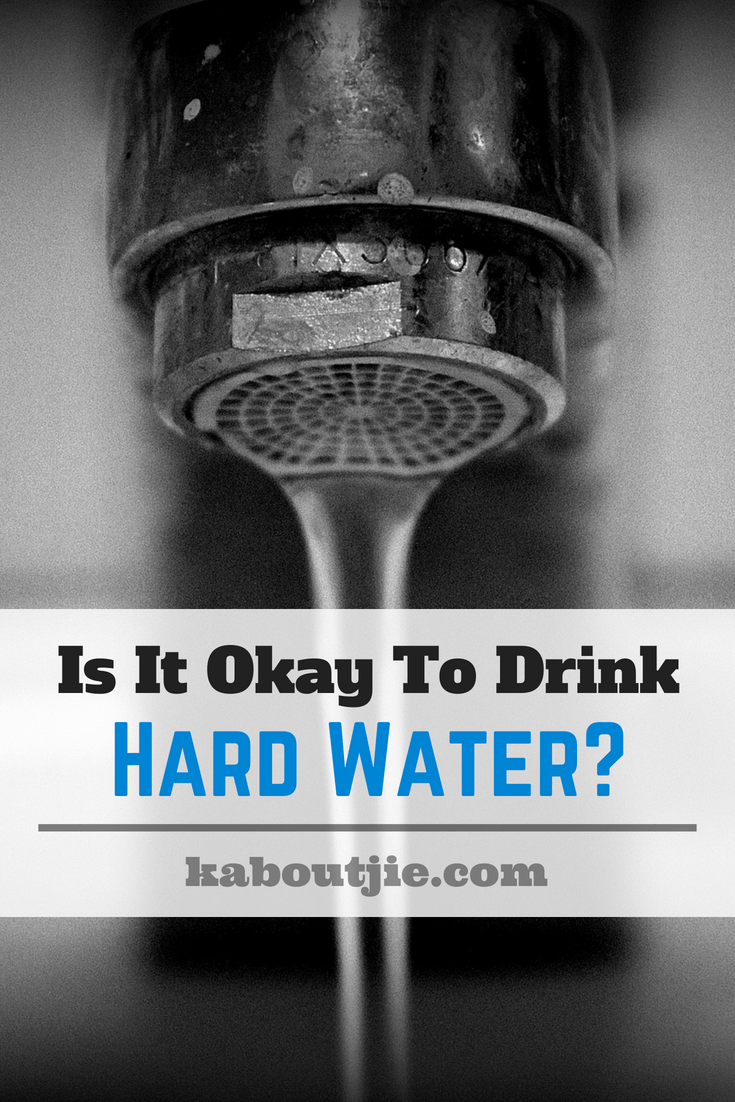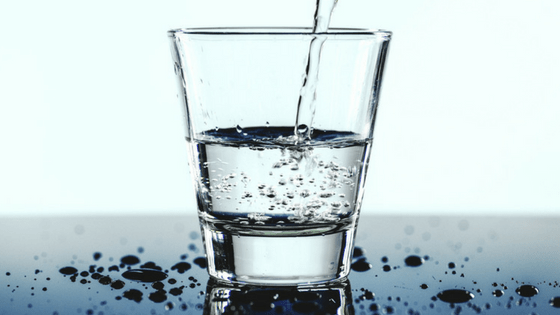It is not unknown these days that many people including experts have a positive opinion about drinking hard water. It is a constant debate whether it is safe to drink hard water or not. Well, there are benefits of it as well as potential health risks too. There has been a lot of research done and yet to be done on this subject and you should know what you can do about it. Keep reading and you will know what should be your call.

What Is Hard Water?
Let’s face it: we all have heard our parents complaining about the hard water. Hello to soaps that won’t lather, dull hair when washed in hard water, spots on the faucets and dishes, spoiled shower glass doors, scaling in the pipes and dried skin due to hard water; you made me realize hard water is the culprit for all these things and I looked for what hard water actually is.
Hard water doesn’t have anything to do with the physical property of hardness. Water is said to be hard when it has calcium and magnesium compounds in it. To make it simpler, we can say the hard water has more calcium and magnesium ions in it.
What Makes The Water Hard?
Rainwater is soft as it doesn’t have any calcium or magnesium compounds dissolved in it yet. The water fallen on the earth goes beneath the surface and it passes through many layers of sands and rocks. As rainwater passes through all these layers, it dissolves calcium and magnesium from soil, rocks, and sands. As I have said earlier calcium and magnesium are present in the water in the form of chemical compounds. So, this is how normal water gets it hardness and becomes hard water.

Hard Water Scenario In The US
An actual pattern of the hard water in the United States is shown on the map. The least hardness is observed in the South Atlantic-Gulf States, parts of New England, Hawaii, and the Pacific Northwest. Moderate hardness was common in many rivers of Alaska and Tennessee, the Pacific Northwest, and the Great Lakes region.
Hard and very hard waters were observed in some streams in most of the regions throughout the country. And if you are from any of the following regions, then you are definitely aware of the hard water as streams in these regions of the US have the hardest water across the country (greater than 1000 mg/L): Texas, New Mexico, Kansas, Arizona, and Southern California.
Drinking Hard Water And Its Potential Health Impacts
There are no significant studies conducted that clearly show the correlation between drinking hard water and health issues. In fact, the National Research Council has stated that drinking hard water is not a health hazard. Further, it has stated that drinking hard water can contribute a small amount to our daily needs of calcium and magnesium and where water with the high amount of calcium and magnesium ions are used, the hard water is the main contributor of the calcium and magnesium in the diet.
However, magnesium is used in laxatives for its laxative effects. And that may cause stomach upset for some people if they suddenly switch to the hard water. Well, needless to say, magnesium acts as a laxative when it is taken as a supplement only, magnesium in your diet won’t create such problems.
A research observed the correlation between hard water and cardiovascular diseases. Scientists found an almost inverse relationship between the two. Not to mention, the constraints were taken into account while conducting the study and further, the scientists are looking forward to expanding their research on more people with implying different constraints.
What is the best water? I’d say, the water that is tested is the best one! After all the good things you have known about drinking hard water, there is a caveat here. What if your hard water has any other foreign material which can cause the major health issues? There can be iron, manganese, and arsenic in it. These heavy metals are so dangerous for your health if they are present in the substantial amount.
Getting your water tested from reliable laboratories will let you help to understand what you need to do and how to do. They will charge you a fee but you will know whether the hard water you’re getting is safe to drink or not. An arsenic test is generally conducted to check the presence of the heavy metals in the water.
The National Research Council has stated that the research done so far is inconclusive and a lot of studies should be done to come to a conclusion whether drinking hard water is okay or not. Till then, all you can do is get your water tested and install the apt water treatment facility to treat hard water. Good water softeners (mechanical and packaged both) is a great solution for the hard water.
A small caveat here, mechanical water softeners follows ion exchange process to remove calcium and magnesium ions. Many people believe it adds too much sodium to the water that makes it unhealthy. Well, as a matter of fact, water softeners add 8mg/liter for each grain of water hardness removed per gallon of water. And that’s a fairly low amount of sodium which does not cause any harm to you.

What Are Other Factors We Need To Consider?
So far we have discussed only drinking hard water. What are the other health effects of it? Ever felt skin dryness and itchiness after getting a bath in hard water? Skin dryness and itchiness is common with it. Small bumps due to dry skin can emerge on the skin surface too.
The shampoo and the soaps won’t react to the hard water and it will stay on your skin surface undissolved. This can cause rashes and other skin issues. Moreover, the skin dryness in the head can cause severe dandruff problems or skin disorders.
Apart from these, hard water downsides are not unknown and definitely, it is not good for you at all. Scaling in heating elements used in the machines, boilers, cisterns, and plumbing joints can cost you. Moreover, it ruins the fiber of your cloth and reduces a lifespan of the machines which have to water. Scaling and staining can become a huge mess if soft water is not used for chores.
Conclusion
Drinking hard water is safe and even healthy sometimes. All you need to do is get it tested and check whether it has any heavy metals and minerals or not. However, the studies are going on to discover its negative health impacts.
Using hard water for household stuff is definitely not recommended. So the best water softeners available should be your call. You will need it installed it anyway. There’s one thing you can do to use hard water for drinking purpose (if at all you do want to get the health benefit). When installing the water softener, dedicate a separate pipeline which does not pass through the softener can be used to draw hard water for drinking. This is the easiest way to tackle the water problems easily.
About The Author
Olivia is a health expert and concerned with the public health. She has completed her graduation in Environmental Health and Water Quality Technology from Wisconsin University. Olivia lives in the Rocky Mountains with her husband, a medium-sized dog, and an attack cat. She loves to write and contributing her altruistic thoughts and her knowledge at watergadget.com
 Kaboutjie SA Mommy Blogs by Lynne Huysamen
Kaboutjie SA Mommy Blogs by Lynne Huysamen




